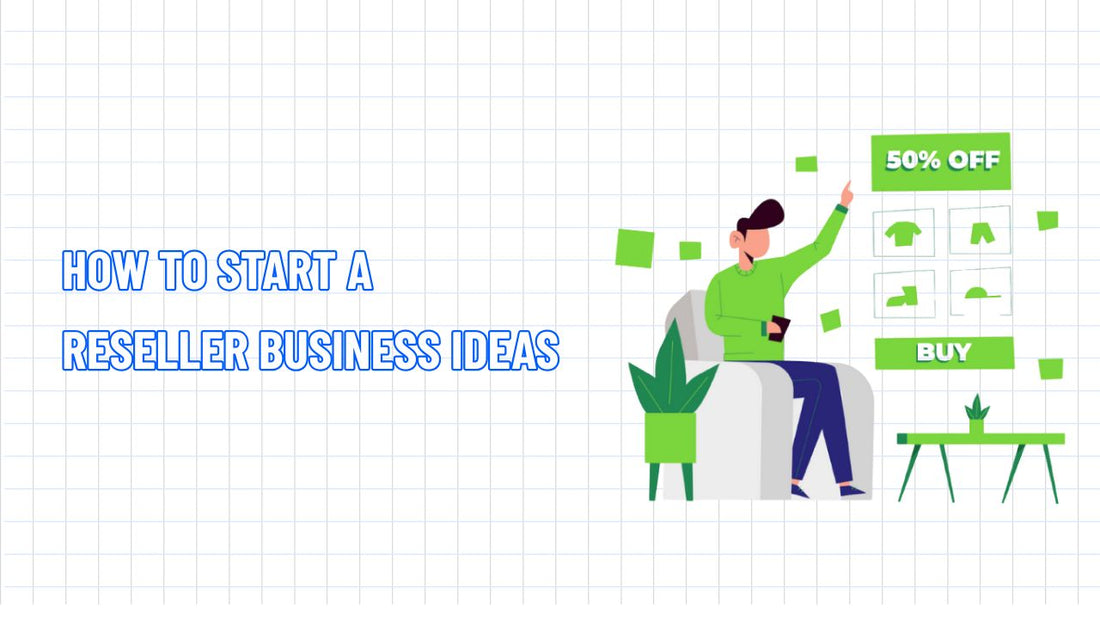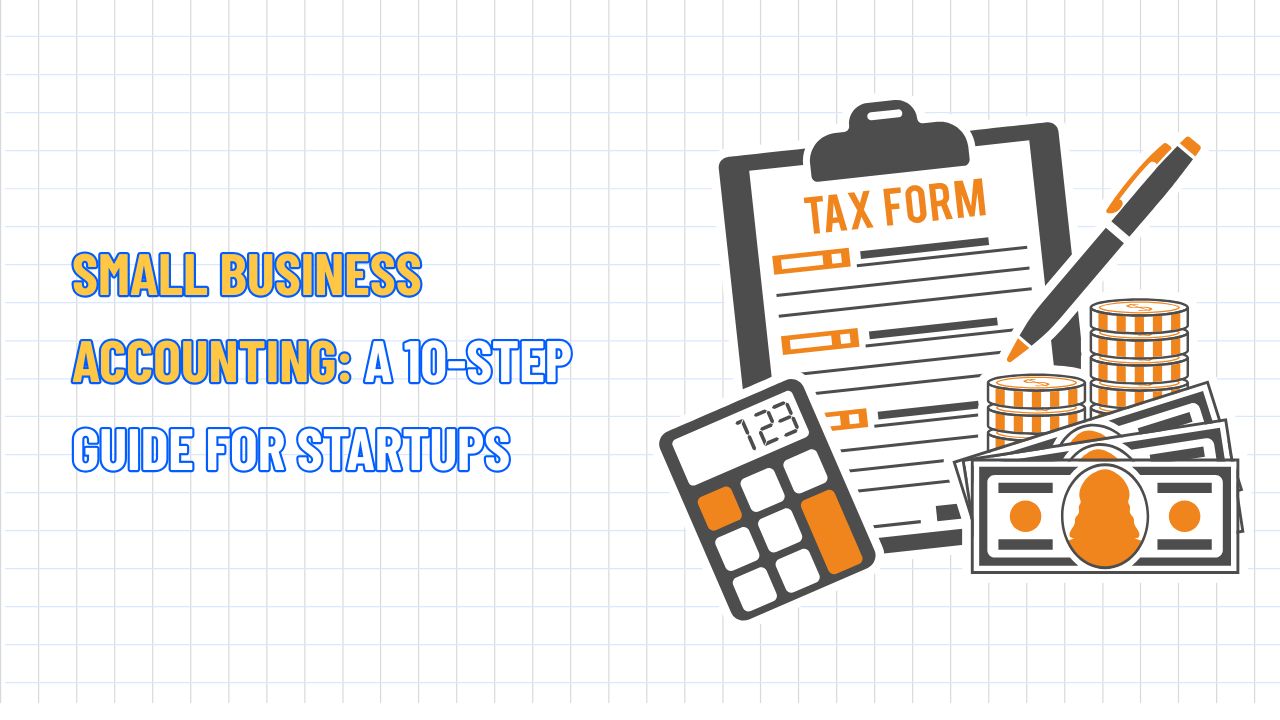How to Start a Reseller Business: A Comprehensive Guide to Success
Table of Contents Hide
The reseller business model offers a low-risk, high-profit opportunity for those looking to enter e-commerce without producing their products. In this article, NextSky provides practical strategies based on industry trends and expert insights to help you launch and scale a reseller business in 2025.

What is a reseller business?
Reselling involves purchasing products or services from suppliers and selling them to consumers at a higher price. Unlike traditional retail, resellers often target niche markets, select unique products, and leverage channels like online marketplaces or personal websites.
This flexible model encompasses dropshipping, wholesale reselling, retail arbitrage, or services. Value is created through careful product curation, engaging shopping experiences, and effective marketing strategies, such as selling vintage clothing on Shopify with styling tips to attract fashion enthusiasts.
Why choose a reseller business in 2025?
The secondhand market is experiencing remarkable growth, driven by increasing demand for sustainable shopping, unique products, and affordable prices. Here’s how to start a reseller business today:
- Low startup costs: No need to invest in manufacturing or product development, significantly reducing initial financial barriers.
- High flexibility: Operate online, offline, or both, and manage your business from anywhere.
- Scalability: Easily add new products or enter different markets without restructuring operations.
- Strong market demand: The global e-commerce market is projected to reach $8.1 trillion by 2026, fueled by demand for unique and affordable products.
- Diverse opportunities: From luxury goods to digital services, reselling can be applied across various industries and niches.
Read more: Top 26 Best Online Business Ideas Worth Trying Today
How to start a reseller business?
Ready to dive into the promising world of reselling? To succeed, you need a solid plan and effective execution. Here’s a roadmap you can’t afford to miss!
Choose your niche
Selecting the right niche is a critical strategic decision that sets you on the right path. A well-defined niche helps you target the right customers, reduce competition, and establish a strong market presence. Consider these factors:
- Find high-demand, low-competition products: Use tools like Google Trends or Amazon’s "list” list to identify popular items. For example, secondhand clothing is trending due to the demand for sustainable fashion.
- Choose what you love or know: If you’re passionate about fashion, try selling vintage clothing. Tech-savvy? Consider refurbished electronics. This makes promoting products easier.
- Aim for profitability: Look for products you can buy low and sell high with at least a 20–50% margin. For instance, purchasing a vintage watch for $20 and selling it for $40 is entirely feasible.
Hot niches for 2025:
- Sustainable fashion: Secondhand clothing, designer handbags, and eco-friendly accessories.
- Tech gadgets: Refurbished phones, wireless earbuds, smart home devices.
- Collectibles: Pokémon cards, vinyl records, rare coins.
- Home goods: Home decor, kitchen tools, home gym equipment.
Example: If you love vintage fashion, start by selling retro shirts or vintage sunglasses, which are highly popular among younger audiences on Instagram and TikTok.
Learn more: TOP 40+ Home business at home with Real Examples
Find reliable suppliers
Suppliers provide the products you resell. Finding a good source saves costs and ensures quality. Here are some ways to source products:
- Wholesale: Platforms like Alibaba, SaleHoo, or Worldwide Brands offer bulk products at low prices. Contact suppliers directly to negotiate better deals.
- Dropshipping: If you don’t want to hold inventory, try dropshipping through platforms like AliExpress or Spocket, where suppliers ship directly to your customers.
- Local Sources: Visit thrift stores, liquidation sales, or flea markets for unique items like antiques or secondhand clothing.
- Partner with Manufacturers: For exclusive products, connect directly with small brands or manufacturers to place orders.
Tip: Before buying in bulk, order sample products to verify quality. Check supplier reviews on platforms like Trustpilot or consult online business communities for objective insights.
Example: If you’re reselling secondhand handbags, source from platforms like Poshmark or local thrift markets. Always check product condition to minimize risks and protect your brand’s reputation.
Learn more: How to Test Business Ideas for Success: A Comprehensive Guide
Register your business and obtain a resale license
To operate legally, register your business and obtain a resale license. This license allows you to purchase products tax-free for resale and collect and remit sales tax from customers.
- Business registration: Depending on your country, register as a sole proprietor, LLC, or corporation. Check local business regulations or use services like LegalZoom for guidance.
- Resale license: Required for wholesale purchases to avoid initial taxes. Contact your local tax authority or use services like Avalara for support.
- Sales tax: Collect sales tax from customers and remit it to the tax authority. Tools like TaxJar or QuickBooks simplify management.
- International regulations: Research taxes and shipping rules to avoid complications if selling abroad.
>>> Read more: Find Out The 30 Attractive Wholesale Business Ideas 2025
Set up sales channels.
Sales channels connect you with potential customers. Shopify is an ideal platform for resellers, especially for dropshipping and sourcing.
- Create an online store: Use Shopify to build a professional, user-friendly store with themes like Glozin or Umino, optimized for speed and SEO.
- Leverage online marketplaces: Sell on Amazon, eBay, Etsy, or Poshmark to reach a broader audience.
- Social media sales: Use Instagram, TikTok, or Facebook Marketplace to showcase products and engage customers.
- Offline channels: Consider local consignment shops, flea markets, or pop-up stores for in-person sales.
Shopify - specific tips:
- Use Shopify Collective to connect with U.S.-based brands for curated products.
- Integrate sourcing apps like Oberlo or Spocket for efficient inventory management.
- Optimize your store with SEO-friendly product descriptions, high-quality images, and customer reviews.
Read more: 50 Lucrative Business Ideas for Women to Start in 2025
Price products strategically
Pricing balances covering costs and staying competitive. Consider these factors:
- Cost of Goods Sold (COGS): Product, shipping, and refurbishment costs.
- Market Research: Analyze competitors' platforms like eBay, Amazon, or StockX to set competitive prices.
- Profit Margins: Aim for 20–50% margins for most products, with collectibles or luxury items potentially reaching 100–200%.
- Value-Added Services: Offer free shipping, warranties, or customization to justify higher prices.
Pricing Examples:
- Vintage Clothing: Buy a dress for $10, sell for $50 (400% profit).
- Refurbished Smartphones: Buy for $200, refurbish for $50, sell for $400 (60% profit).
- Collectible Cards: Buy a rare Pokémon card for $100, sell for $300 (200% profit).
>>> See more: TOP 25 Seasonal Business Ideas to Boost Your Income
Build a Marketing Strategy
Effective marketing drives traffic and conversions. Focus on strategies tailored to your niche and audience:
- SEO Optimization: Use keywords like “reseller business,” "vintage clothing, or" refurbished electronics” in product titles, descriptions, and blog content. Tools like Ahrefs or SEMrush help identify high-ranking keywords.
- Social Media Marketing: Create engaging content on Instagram, TikTok, or Pinterest to showcase products—partner with influencers in your niche for greater visibility.
- Content Marketing: Start a blog or YouTube channel to share niche-related tips, like “How to Style Vintage Outfits” or “Top 10 Collectible Vinyl Records for 2025.”
- Email Marketing: Build an email list to promote new products, discounts, or loyalty programs.
- Paid Advertising: Use Google Ads or social media ads to target specific demographics, ensuring a high return on ad spend (ROAS).
Provide outstanding customer service.
Customer satisfaction builds trust and encourages repeat purchases. Key practices include:
- Accurate product descriptions: Provide detailed information on high-value items' condition, size, and authenticity.
- Fast shipping: Partner with reliable carriers or use dropshipping for timely deliveries.
- Return policy: Offer a fair, transparent return policy to build trust.
- Customer support: Respond promptly to inquiries via email, social media, or live chat.
Scale your business
Once your reseller business is stable, explore opportunities to grow:
- Expand product lines: Add complementary products (e.g., accessories for clothing resellers or phone cases for electronics).
- Diversify sales channels: Combine Shopify with marketplaces like Amazon or eBay to increase reach.
- Automate processes: Use Shopify apps to automate inventory management, order processing, and customer communication.
- Build a brand: Create a recognizable brand with a professional logo, consistent aesthetics, and a loyal customer base.
Top 10 Reseller Business Ideas for 2025
Based on market trends and profitability, here are 10 reseller business ideas designed for success on platforms like Shopify:
Vintage fashion
The global secondhand fashion market was valued at $197 billion in 2023 and is projected to reach $350 billion by 2028. You can source unique pieces from thrift stores, auctions, or personal archives and sell them on platforms like Etsy, Depop, or Instagram — ideal for customers who value individuality.
Refurbished electronics.
Refurbished tech is booming as consumers seek quality at lower prices. According to GlobeNewswire, the global market was worth $47.57 billion in 2023 and is projected to reach $123.71 billion by 2033, growing at 10.03% CAGR. This creates strong potential for selling “like-new” devices on platforms like Amazon Renewed or Back Market.
Collectibles
From Pokémon cards to vinyl records, collectibles are making a major comeback. The global trading card game market is projected to grow from $7.8B in 2025 to $11.8B by 2030. For those with a sharp eye and love for nostalgia, it's a high-profit niche worth exploring.
Designer handbags
Luxury handbags are booming, with the market hitting 60.29 billion in 2025 and reaching USD 104.24 billion by 2032. Top-tier brands like Chanel, Hermès, and Louis Vuitton retain strong resale value, making them a smart niche for fashion entrepreneurs who know how to blend exclusivity with storytelling.
Home Decor
Modern homeowners crave bold, soulful, and intentional spaces that reflect their identity. Hand-painted art, artisanal ceramics, and woven rugs don't just decorate a room; they tell stories of craft and conscious living. You can source from independent makers or restore vintage pieces with a "co-luxury" touch, sustainable, unique, and deeply personal.
Learn more: Top 1000+ Most Impressive Interior Home Decor Business Names 2025
Clean Beauty
Beauty today is more than skin deep. It's about health, ethics, and environmental respect. Clean products like botanical serums, handmade soaps, or vegan lip balms are becoming staples, especially among Gen Z. If you know how to engage communities on TikTok or Instagram, reselling clean beauty products can be both a meaningful and profitable path.
Secondhand Books
Some books are more than stories. They're heirlooms of wisdom. Rare novels, out-of-print textbooks, and first editions still appeal deeply to readers and collectors alike. If you can highlight each title's emotional and intellectual value, platforms like Amazon, TikTok Shop, or niche marketplaces offer a powerful way to bring old books new life.
Vintage Instruments
A scuffed guitar, a classic upright piano, their charm lies in their history. Musicians are often drawn to instruments with character, warmth, and soul. The vintage instrument market can be rewarding and artistically fulfilling if you can assess quality, share their story, and connect with the right buyers, from indie bands to music students.
Pet Accessories
Pets today have their wardrobes, travel gear, and social followings, and their humans love spoiling them. Whether it's stylish collars, interactive toys, or travel-friendly carriers, pet lovers are eager to buy. Build a brand with personality, stay active on social media, and your reselling business for pets can grow faster than you think.
>>> Read more: 1000+ Pet Business Name Ideas to Inspire Your Brand Today
Starting a reseller business in 2025 is an exciting opportunity to tap into a growing market with the minimal initial investment. With the insights provided by NextSky, you can build a profitable and scalable business.










